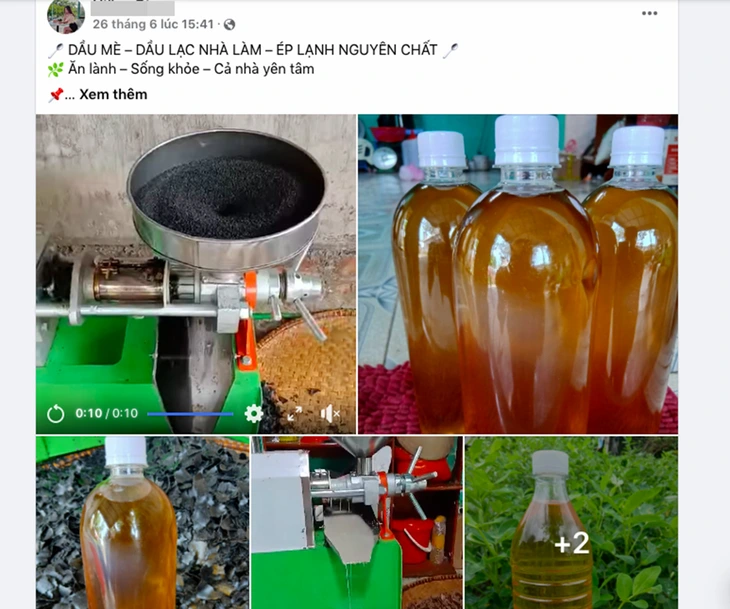
Many "homemade" cooking oil products... are posted by sellers on online markets but their origin and usage limits are unknown - My screenshot
Even many e-commerce sites such as Shoppe, Lazada... also sell a series of "homemade products" such as dried bananas, beef jerky, moon cakes... without expiration dates and unclear origins. Meanwhile, quality control and food hygiene and safety are almost neglected.
"Clean" moon cakes without stamps or inspection?
Although it is only the 15th day of the 6th lunar month, consumers can easily find hundreds of advertising posts and dozens of Facebook pages selling handmade and "homemade" products with all kinds of designs and types just by typing in the keyword "moon cake".
According to a survey by Tuoi Tre, most "homemade" moon cakes on online markets are often advertised attractively as "handmade cakes", "clean ingredients", "no preservatives", "no colorants, no chemicals", good for health...
The price of these cakes ranges from 45,000 - 180,000 VND/piece depending on the ingredients, size and packaging. Many shops also offer "combos" of 2 - 8 cakes priced at 100,000 - 400,000 VND/box.
These "homemade" products have a variety of filling flavors that are not inferior to industrial products. Besides traditional flavors such as mixed, green beans, lotus seeds, taro, coconut milk..., many establishments also create additional fillings such as salted egg lava, tiramisu, durian, blueberry cheese or red bean mochi egg...
A bakery named NB promotes its "healthy cakes" product line on Facebook with a strong commitment: "Bread is made fresh every day."
The ingredients are introduced as: Japanese seaweed sugar, coffee flower honey and natural vegetable-derived food coloring (?). "You can enjoy traditional flavors without worrying about sweetness or additives," the page asserts. Many shops even introduce mini cakes that are smaller than the regular type, helping consumers "taste many flavors without getting bored."
However, behind the eye-catching shell and attractive advertising are a series of big questions about the quality and level of food safety and hygiene. Surveys on social networking platforms show that most "homemade" mooncakes do not have specific labels, do not have hygiene inspection stamps, and especially do not disclose the origin of the ingredients or health certificates of the person directly making the cake.
Some products are packaged in a simple way with waxed paper, tied with “vintage” string, accompanied by handwritten notes or cute messages but without any food safety documents. Many bakers admit that they only produce seasonally to earn extra income, work to order, and do not have a fixed recipe. However, no one can guarantee that these commitments are real or just to gain the trust of consumers.
Clean or just a verbal promise?
In fact, in recent years, "homemade" mooncakes have become increasingly popular. Many "bakers" spontaneously operate as households or individuals learning handicrafts, taking advantage of the Mid-Autumn Festival to increase their income. Many establishments take advantage of taking photos, filming videos , and running ads on Facebook, TikTok, etc. very early to retain regular customers and attract new orders.
Images of moon cakes and moon cakes with eye-catching designs and a variety of new fillings such as lava flow, durian with salted egg, tiramisu, cheese... continuously appear, hitting the psychology of liking beautiful - unique - strange things of modern consumers, especially young people. Ms. Kim Chung (Thu Duc ward, Ho Chi Minh City) said that she still buys "homemade" cakes that can be customized according to her own needs.
"However, food safety and hygiene must still be a mandatory factor. I only buy "homemade" cakes from real acquaintances, from real, long-standing reputable sales sites, and do not support places that only advertise "homemade" products," said Ms. Chung, adding that she chooses to buy "homemade" cakes from acquaintances with long-standing reputations to avoid the risk of buying poor quality products that are rampant today.
Meanwhile, despite being advertised as “preservative-free,” many types of “homemade” mooncakes are launched on the market very early, as early as the sixth lunar month. Products without preservatives can lead to food safety risks. Under improper storage conditions, moist, sweet fillings are easily spoiled, contaminated with bacteria, and pose a potential risk of food poisoning.
"Homemade cakes are usually 20-30% more expensive than industrial cakes. Sellers always advertise that the cakes are clean, but the products are not clearly inspected, so there is no guarantee that the cakes are as clean as advertised online. Some places say they are homemade, but when asked, they are always available. Is it because they buy wholesale and then label them "homemade"? ", Ms. Thu Huong (living in Ho Chi Minh City) expressed her doubts.
According to Ms. Huong, many people may buy wholesale ingredients at the market, then "magically" package them, and then advertise them as "homemade". The phrase "homemade" is gradually becoming a shield for products to avoid responsibility for declaring quality and controlling food hygiene and safety.
"Homemade" should only be eaten at home!
At a recent anti-counterfeit and counterfeiting seminar held in Ho Chi Minh City, Ms. Pham Khanh Phong Lan, director of the Ho Chi Minh City Department of Food Safety, warned that the 2025 moon cake season is approaching, and there will certainly be a situation where "homemade" moon cakes are being sold widely online.
According to Ms. Lan, "homemade products" should only be eaten at home. If you want to sell them on the market, you must comply with all the regulations on declaration, from invoices proving the origin of input materials, health certificates of the person directly making the cake, how to know if someone with an infectious disease participated in food production.
"We have checked and found that moon cake selling points do not have documents and do not ensure food safety conditions, and will definitely be strictly handled. Online sellers who do business properly do not hesitate to publicly disclose documents proving goods according to regulations," Ms. Lan affirmed.
According to a representative of the Ho Chi Minh City Department of Food Safety, many food products are abusing the label "homemade goods", goods without packaging and labels according to regulations but are being sold in the market. Therefore, this will be an area that authorities will strengthen their review and inspection in the coming time.
Dr. Tran Thi Minh Hanh, head of the nutrition and dietetics department at Hoan My Saigon Hospital, said that producers of "homemade products" are almost never registered for business, and are not subject to inspection or supervision by authorities, but mainly depend on the trust of sellers and buyers, and the awareness of the producers. Therefore, product quality is often... a matter of luck.
An expert in the food industry also said that "homemade products" made from confectionery, ham, salted chicken, and even alcoholic products... have flourished in recent times, and are being sold a lot, but control is almost neglected. These products lack food safety and hygiene certificates, so it is even more difficult for consumers to return or claim benefits when problems arise.
"This is a big loophole in control. Therefore, in addition to increasing inspections, state agencies should have more regulations on business registration and quality control for "homemade goods" to be closer to reality. If this segment is allowed to be commercialized, it will be more secure," he said.
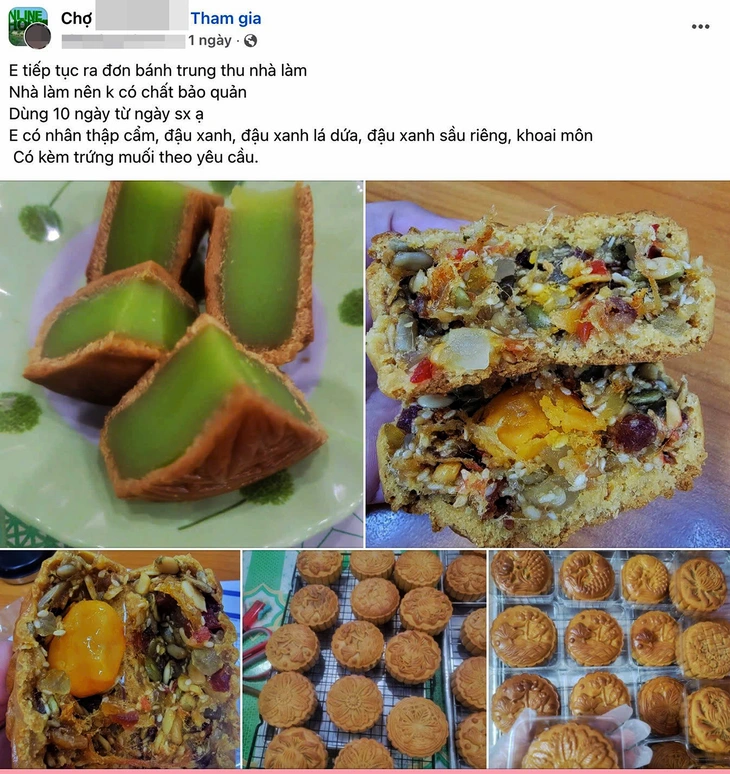
Homemade mooncakes are widely sold online with the promise of being "clean and delicious" but the origin and quality of the products... have not been controlled by authorities - My screenshot
"Homemade goods" are rampant, businesses are upset
Just search the phrase "homemade goods" on Google, immediately there are millions of results appearing, most of which are food. On the Facebook Fanpage "Vietnam Food Industry Association...", just type in the phrase "homemade goods", from beef jerky, ham... all kinds appear but most of them have unknown origin and expiration date.
An account selling a large quantity of "homemade" beef jerky confidently advertises it as "family heirloom, high-quality goods" but according to the posted image, on the packaging there is only a phone number for contact, no certificate, expiration date, or specific address. Responding to us, the seller said that the "homemade goods" do not take these issues seriously, many people buy them because they are delicious.
Similarly, in another food group on Facebook, many jams, candies, rice noodles, rice noodles... are labeled as "homemade" and are widely sold. However, customers cannot know which house made them, because the packaging has no clear origin or expiration date...
Talking to Tuoi Tre, a food manufacturing company said that it cannot be denied that consumers have more choices with the "homemade" brand, which is more suitable for their taste. However, the quality is "very difficult to say", because "homemade" products are all unknown in origin and lack quality control and are widely sold today.
The widespread sale of many food products in recent times without control from authorities is causing market disruption, posing potential risks to consumers, and affecting branded units.
"We register our business, spend a lot of money and are subject to control from the authorities, and are responsible for our own products, but "homemade goods" are sold freely. This is unfair," said a representative of a ham hock manufacturing business in Ho Chi Minh City.
"Homemade" but which house made it?
According to Dr. Tran Thi Minh Hanh, the phrase "homemade goods" is being abused quite a lot because sellers appeal to consumers' tastes and psychology, wanting to create friendliness, trust, and convenience for consumers, like home-cooked meals.
However, if consumers want to buy, they have to ask: "Homemade", but which house, how is it made, what are the ingredients? Because "homemade" products are sold a lot, especially on online markets, but their origin is quite obscure.
"Consumers place orders and have them delivered by shippers without knowing who the product is from, how it was produced, or whether it is safe or not. This poses risks to users," Dr. Hanh warned.
Source: https://tuoitre.vn/tran-lan-hang-nha-lam-nhieu-rui-ro-20250711081054082.htm




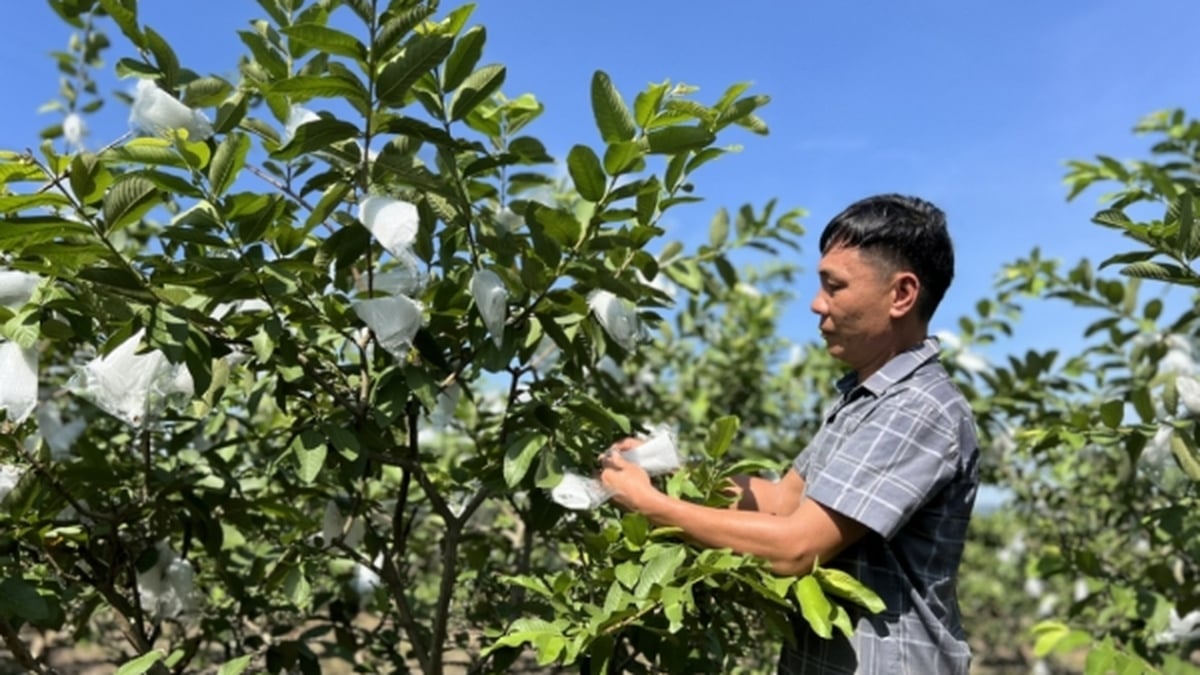



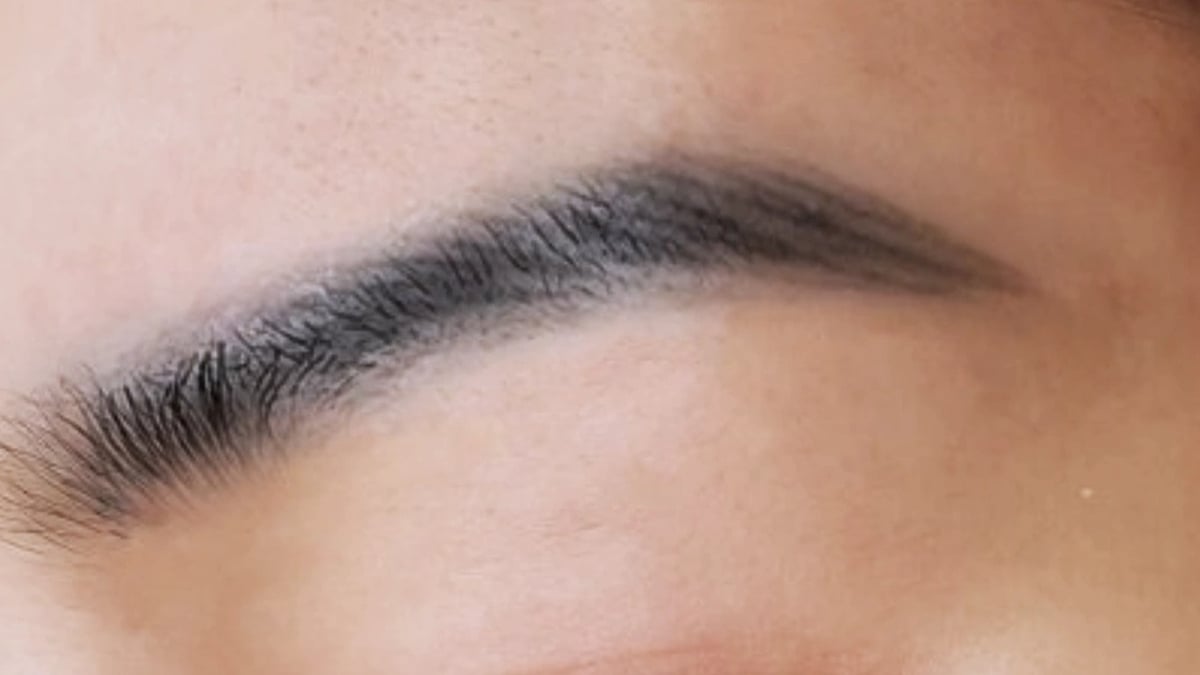



































































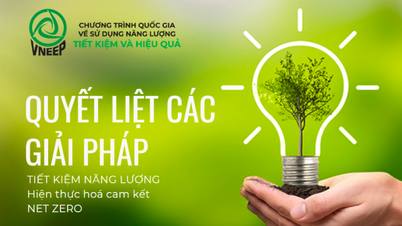
















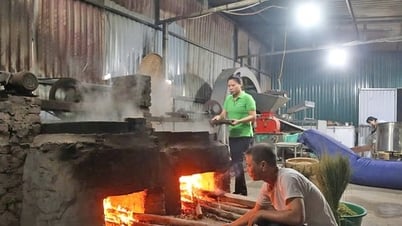










Comment (0)